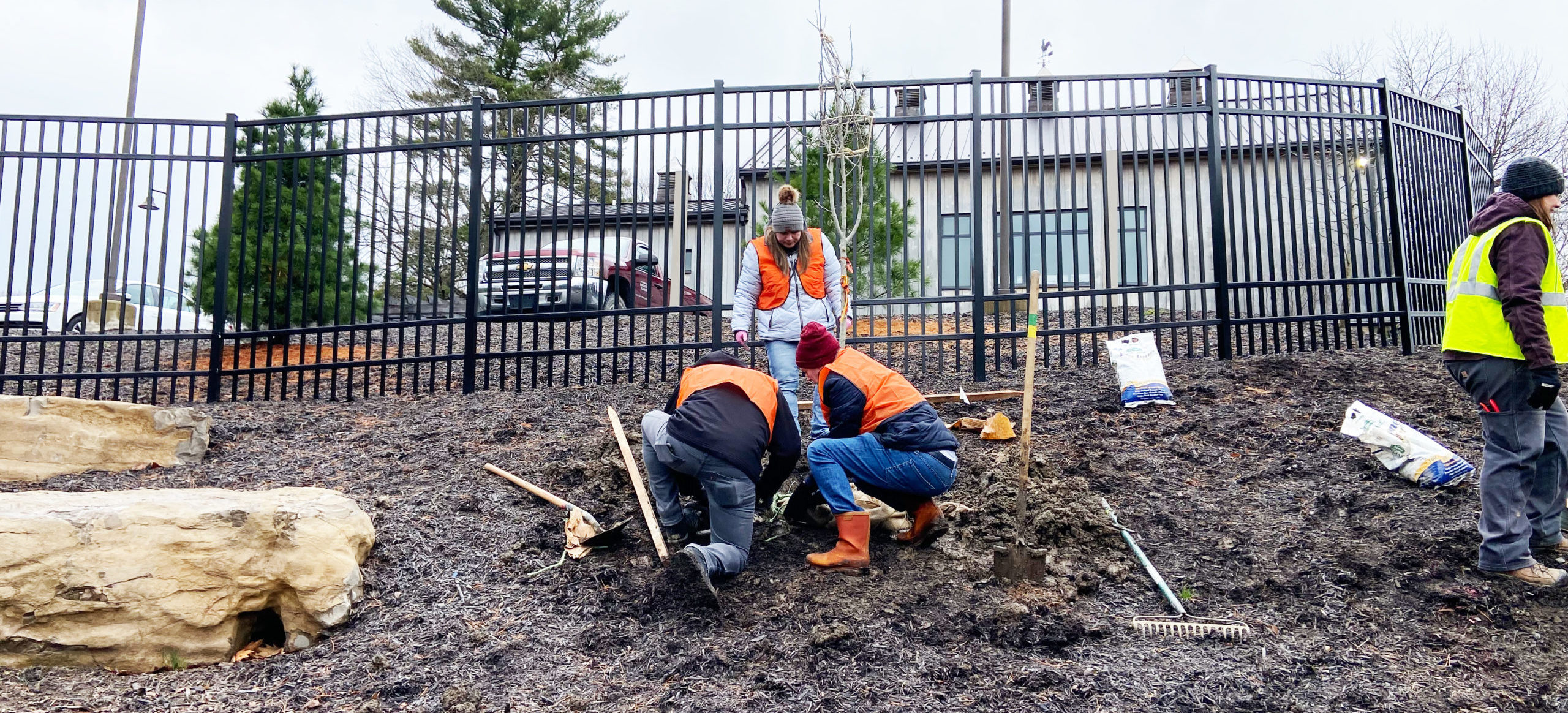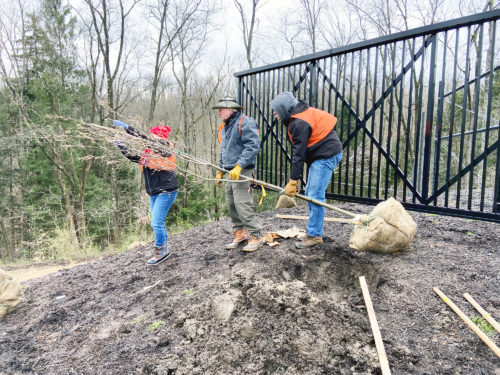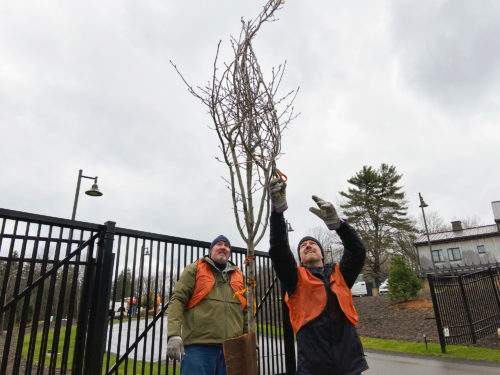
Fenner Dunlop plants trees at Pittsburgh Botanic Gardens
Team members from Fenner Dunlop’s corporate office planted trees at the Pittsburgh Botanic Gardens on Tuesday to celebrate National Volunteer Week and Earth Week. After a demonstration on how to properly plant a tree presented by the Western Pennsylvania Conservancy, the team planted around 25 trees including Holly, White-Flowering Dogwood and Evergreen trees weighing roughly 250 pounds each.
This is our corporate team’s second time planting trees here. In October of 2018, the team gathered at the Gardens to plant 3,900 seedlings. As the COVID-19 pandemic continues to be under close control in the Greater Pittsburgh Region, we are eager to continue getting out into our community and making a difference for our planet.
Fenner Dunlop and Our Sustainability Mission
At Fenner Dunlop, we are proud to take care of the Earth on a daily basis, which includes making green manufacturing decisions. We are fully cognitive that Earth has limited resources, so we adopt an internal philosophy of “more with less.” What this means is that every step of the conveyor belt manufacturing process strives to optimize the energy and electricity utilized at our manufacturing plants. We optimize the consumption of nylon and polyester in our carcass constructions to yield the best product with the least amount of physical material(s) and optimize the amount of recycled material(s) that go into our rubber compounds. The programs we have implemented with regard to energy saving along with utilizing recycled rubber components have delivered strong results. Plus, we are proud to offer the longest lasting conveyor belts, which means our customers benefit from requiring less conveyor belting for their bulk material handling operations vs. typical plied belting options.
Pittsburgh Botanic Gardens History

Did you know the Pittsburgh Botanic Gardens is among among the top 10 largest American botanical gardens?
The Pittsburgh Botanic Garden is a location of choice for Fenner Dunlop to volunteer at because the 452 acres of land that the garden sits on was once home to a coal mine. Prior to the Surface Mining Control and Reclamation Act of 1977, coal companies were not obligated to restore mined areas. Once the coal was removed, companies left the land scarred and did little to alleviate the damage done to the landscape. The land at the Pittsburgh Botanic Gardens has undergone mine reclamation treatment, which is the process of modifying land that has been once been mined to a ecologically functional or economically usable state.
One of the first issues encountered at the Pittsburgh Botanic Garden after the society had received the land was the presence of acid mine drainage. Acid mine drainage forms when air and water come into contact with exposed sulfurous rocks in coal mines, forming acidic water often with dissolved toxic metals. This acidic water pollutes streams and ponds downstream of the mine, and persists even after the mine is abandoned.
“Acid mine drainage seeping from abandoned mines at the Garden polluted various waterbodies on site. A small pond, central to the site, was found to be lifeless with a pH of around 2.9, which is acidic and similar to human gastric juices and dissolved aluminum, which is highly toxic to both plants and animals” according to the Pittsburgh Botanic Gardens website.
In 2004, Hurricane Ivan flooded the mines and made conditions worse. It took years to find a solution that would help heal the land. In 2008, a company was hired to both remove the coal that remained in the mine and reclaim/treat the acid mine drainage.
To treat this issue and bring the pond back to life, a drainable limestone bed was installed next to the pond in 2012. The acid mine drainage is neutralized as it flows over the limestone bed and the dissolved aluminum reacts with limestone to create aluminum hydroxide, an inert chemical that is captured in a settling basin. Water in the pond and downstream areas are neutral in pH and free of dissolved aluminum; the treated water drains into Chartier’s Creek. That same year a 400,000 gallon underground cistern was constructed to supplement the Pittsburgh Botanic Garden’s future irrigation system and eliminate dependence on municipal water.
Since 2010, approximately 20 acres have been cleared of invasive species, and over 5,200 native trees, shrubs and herbaceous perennials have been planted. Fenner Dunlop is proud to get our hands dirty and add to the amount of trees that now live happily on the lands of the Pittsburgh Botanic Gardens.






